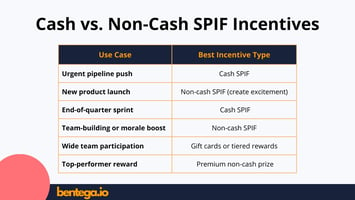Net Promoter Score (NPS): Elevating Growth
Customer loyalty and advocacy are paramount for sustainable growth and success. One key metric that reflects customer loyalty and likelihood to recommend a product or service is the Net Promoter Score (NPS). This article explores the significance of tracking NPS, examples, and discusses strategies to elevating growth through this critical metric.
What is Net Promoter Score (NPS)?
Net Promoter Score (NPS) is a metric used to measure customer loyalty and satisfaction based on the likelihood of customers to recommend a product or service to others. NPS is derived from a single question survey where customers are asked, "On a scale of 0 to 10, how likely are you to recommend our product/service to a friend or colleague?"
Importance of Tracking NPS
- Customer Advocacy: High NPS scores indicate satisfied customers who are likely to become advocates for your SaaS product, driving positive word-of-mouth referrals and potential new business opportunities.
- Retention and Growth: Customers with high NPS scores are more likely to renew their subscriptions and continue using your SaaS platform, contributing to revenue growth and long-term success.
- Feedback Insights: NPS feedback provides valuable insights into areas where your SaaS product excels and where improvements can be made. This feedback can guide product development efforts and help prioritize enhancements.
What is a Good NPS Score?
Determining what constitutes a "good" NPS score can vary depending on the industry and specific context of a business.
Generally, an NPS score above 0 is considered positive, as it indicates that a company has more promoters than detractors. A score of 50 or above is often viewed as excellent, suggesting strong customer loyalty and satisfaction. World-class companies typically achieve NPS scores of 70 or higher, representing a significant level of customer advocacy.
However, it's important for businesses to benchmark their NPS against industry standards and focus on continuous improvement rather than solely aiming for a specific number. Understanding the nuances and feedback behind the score is crucial for driving meaningful enhancements in customer experience and loyalty.

Calculating the Net Promoter Score
Let's consider a hypothetical SaaS company that offers cloud-based accounting software. After conducting an NPS survey among its customers, the company receives 350 responses with the following scores:
- Promoters (score 9-10): 200 customers
- Passives (score 7-8): 100 customers
- Detractors (score 0-6): 50 customers
For calculating the Net Promoter Score we use this formula:
NPS = (Percentage of Promoters - Percentage of Detractors) x 100
NPS = (200/350) - (50/350) x 100 = (0.571 - 0.143) x 100 = approx. 42.8
The NPS for this company is approximately 42.8, indicating a positive overall sentiment among customers.
Strategies to Improve NPS
- Enhance Customer Experience: Focus on delivering exceptional customer experiences at every touchpoint. Provide personalized support, streamline processes, and prioritize customer satisfaction.
- Act on Feedback: Regularly analyze NPS feedback and take actionable steps to address the concerns and suggestions raised by customers. Demonstrate responsiveness and commitment to continuous improvement.
- Invest in Product Quality: Invest in product development to enhance the functionality, usability, and value proposition of your SaaS product. Incorporate customer feedback into product roadmaps and prioritize features that align with customer needs and preferences.
- Build Customer Relationships: Cultivate strong relationships with customers through regular communication, engagement initiatives, and value-added resources. Show appreciation for their loyalty and advocacy.
- Reward Customer Advocacy: Incentivize and reward customers who actively promote your SaaS product to others. Offer referral programs, discounts, or exclusive perks to encourage advocacy and word-of-mouth referrals.
- Educate and Empower Customers: Provide comprehensive onboarding, training, and educational resources to help customers maximize the value of your SaaS product. Empower them to become proficient users and advocates within their organizations.
Conclusion
Net Promoter Score (NPS) is a valuable metric for assessing customer loyalty and advocacy in SaaS businesses. By tracking NPS, SaaS companies can gain insights into customer sentiment, identify opportunities for improvement, and foster long-term relationships with their customer base. By implementing strategies to enhance the customer experience, act on feedback, invest in product quality, and reward customer advocacy, SaaS businesses can elevate their NPS scores and drive sustained growth and success in the competitive market landscape. Remember, satisfied customers are not just customers – they are ambassadors who can propel your SaaS business to new heights.
Curious about how tracking metrics can boost your business?
Visit Bentega.io and subscribe to our newsletter to get notifications when we publish new content.
.jpg?width=960&height=540&name=Business%20Performance%20Metrics%20download%20free%20guide%20(1).jpg)


